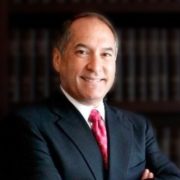Most green card holders may apply for US Citizenship after five years residence in the US. However, if married to an American, there is a special “fast-track” route to citizenship, where the green card holder or lawful permanent resident (LPR) may file for naturalization three years after obtaining his or her green card, instead of the normal five years.
However, there is a catch: the LPR must still be living with his or her American spouse in “marital union” to avail of the three-year citizenship. This means living under the same roof, or actually residing together. If the couple is divorced or separated, even an informal separation (i.e. the couple split up and are living in different locations) the person may not be eligible for the three-year citizenship.
I have come across several cases where the USCIS intensely investigated the “marital union” where the people were seeking three-year citizenship. And it makes sense: After all, if they are claiming fast track citizenship based on their still living with their spouse, you can bet the naturalization examiner is going to question them about that.
In several cases, some LPR’s who were no longer living with their American spouse were impatient to wait for 5 years, and thought they could trick or fool the USCIS. However, they were investigated, got caught, and were placed in removal proceedings. Not only were their naturalization applications denied, but the USCIS went after them, to take away their green cards, because USCIS also found the marriage itself was fixed.
In one situation, a Filipina married a US citizen, who petitioned her. However, she had moved out soon after the marriage. She got lucky and obtained a conditional green card. She even had the conditions removed two years later, even though she was no longer living with the American. (Ordinarily, to obtain a conditional green card or have the conditions removed, the couple is supposed to still be living together, and demonstrate the marriage was “bona fide” (meaning not fixed)).
After securing her unconditional green card, she tried her luck once again. Rather than waiting out the five years and applying for naturalization the regular route, she applied for the fast-track citizenship, by again claiming she was still living with her American husband.
The USCIS investigated, by going to the house in the early morning, talking with neighbors, interrogating the American spouse, and noting in that some of the “joint” documentation she submitted, she and her American spouse had different addresses. So, USCIS uncovered she had not been living with her spouse for some time.
Eventually, the USCIS denied her naturalization application, based on her misrepresentations about living with her spouse. The USCIS also uncovered she had not been living with her spouse when she obtained her green card. Therefore, not only was her naturalization application denied, but USCIS concluded she had made misrepresentations in connection with obtaining her green card, and accused her of marriage fraud. The USCIS sought to have her deported/removed, for having obtained her green card through misrepresentation.
The bottom line is you should certainly apply for benefits if you’re entitled to them. But don’t try and play games or look for improper shortcuts or quick fixes. If you are still living with your American spouse, then by all means apply for citizenship after three years. But if you are not living with the American anymore, not only do you risk having your naturalization application denied, but you also risk being put in removal proceedings.
That is why it is so important that a person seeks the advice of a reputable attorney, whenever applying for immigration benefits, to make sure that they are truly eligible and their eligibility can be properly documented, with the proper proof and evidence.
* * *
Michael J. Gurfinkel is licensed, and an active member of the State Bar of California and New York. All immigration services are provided by, or under the supervision of, an active member of the State Bar of California. Each case is different. The information contained herein including testimonials, “Success Stories,” endorsements and re-enactments) is of a general nature, and is not intended to apply to any particular case, and does not constitute a prediction, warranty, guarantee or legal advice regarding the outcome of your legal matter. No attorney-client relationship is, or shall be, established with any reader.
WEBSITE: www.gurfinkel.com
Call Toll free to schedule a consultation for anywhere in the US:
(866)—GURFINKEL
Four offices to serve you: LOS ANGELES · SAN FRANCISCO · NEW YORK · PHILIPPINES






